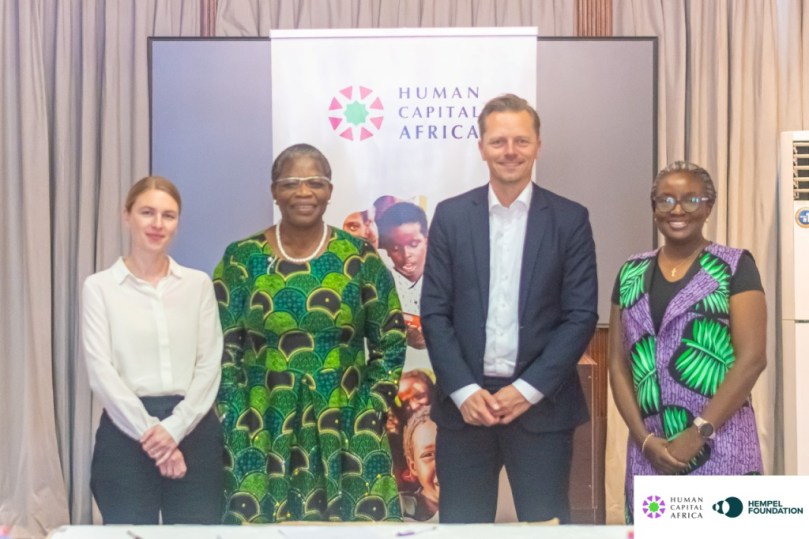A former Minister of Education in Nigeria, Mrs Obiageli “Oby” Ezekwesili, has disclosed that foundational learning in Africa can be achieved it governments have the political will.
She said this after her organisation, Human Capital Africa, sealed a two-year partnership with the Hempel Foundation to strengthen political commitment, accountability, and data-driven reform for foundational learning across sub-Saharan Africa.
“We already know what works to get children learning — what Africa needs now is the political will, the discipline, and the partnerships to take those solutions to scale.
“Foundational learning is achievable when governments lead decisively, when accountability is clear, and when the private sector and philanthropy step up alongside them.
“This partnership between the Hempel Foundation and Human Capital Africa is one more example of what collaboration can do when it is anchored in evidence, transparency, and a shared belief that every African child deserves the chance to learn,” the activist stated.
The collaboration between both parties was struck at the 2025 ADEA Triennale. The initiative underscores a shared commitment to ensuring that every child in Africa learns to read, write, and count by age ten, a milestone that lays the foundation for all future learning and human capital development.
Africa is home to the world’s fastest-growing youth population, yet nine out of ten children in sub-Saharan Africa cannot read or do basic mathematics by age 10.
This learning crisis limits opportunity, deepens inequality, and threatens the continent’s economic potential, with the World Bank estimating a global loss of $21 trillion in lifetime earnings in present value.
The HCA–Hempel Foundation partnership seeks to tackle this challenge by embedding foundational learning at the heart of education systems, fostering stronger political leadership, institutional accountability, and evidence-based decision-making through the use of data in advocacy, policy, and planning.
The partnership will drive system-wide transformation across Africa by strengthening political leadership, deepening accountability, and reinforcing the institutions that sustain lasting reform.
At the policy level, it will build and sustain high-level political momentum by engaging Heads of State, Ministers of Education and Finance, and other senior leaders to position foundational learning as a top development priority.
A core pillar of this effort will be the strengthening of the African Foundational Learning Ministerial Coalition—a minister-led platform for peer learning, collaboration, and mutual accountability.
Complementing this advocacy focus, the partnership will support governments, in Malawi and Uganda, to embed data use and accountability at the system and district levels. By applying tools such as the Adoption Tracker and FLAT, it will strengthen monitoring, promote evidence-based decision-making, and ensure that lessons from the classroom inform policy at every level.
“Accelerating progress in children’s learning requires strong political leadership, accountability, and the smart use of data and evidence.
“Through our partnership with Human Capital Africa, we aim to strengthen all three — helping governments place foundational learning at the heart of national policies, track progress more effectively, and translate data into tangible improvements in classrooms,” the chief executive of Hempel Foundation, Mr Anders Holm, stated.

